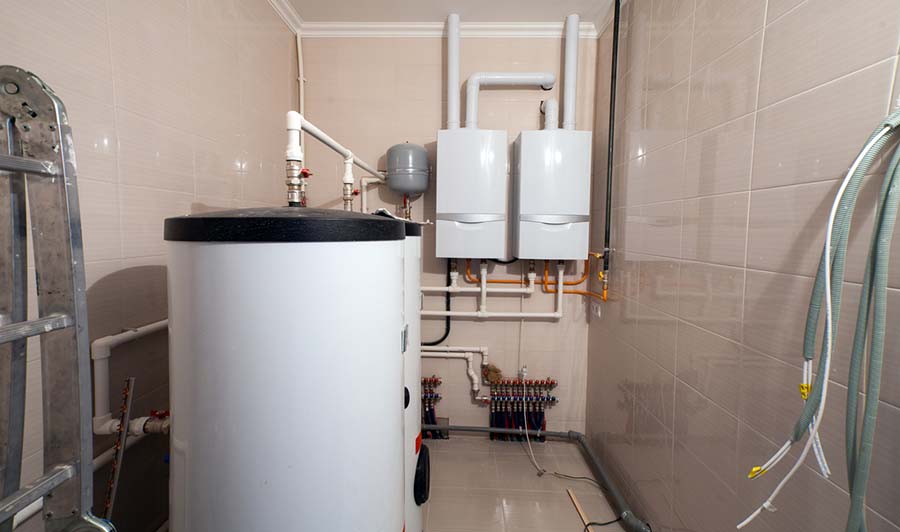Addressing the Everyday Heater Urgent Problems
Addressing the Everyday Heater Urgent Problems
Blog Article
The content in the next paragraphs on the subject of Common Hot Water Heater Problems is fairly attention-grabbing. Give it a try and make your own personal conclusions.

A hot water heater is one of one of the most essential standard home appliances that can be found in a house. With hot water heater, you do not need to undergo the tension of heating water by hand every time there is a requirement to take a bath, do the laundry, or the dishes. However, there is always an opportunity that your hot water heater would certainly act up just like most mechanical devices.
It is essential to note any kind of little malfunction and also tackle it promptly prior to points leave hand. A lot of times, your water heater begins to malfunction when there is an accumulation of debris as a result of continuous usage. As a safety measure, routine flushing of your hot water heater is suggested to stop sediment build-up as well as prevent functional failing.
Common water heater emergency situations and also how to handle them
Leaking hot water heater storage tank.
In this circumstance, you need to transform off your water heating system, enable it to cool down, and also thoroughly look for the source of the trouble. At times, all you require to do is to tighten up a couple of screws or pipeline links in instances of small leakages. If this doesn't work and the leakage persists, you might need to utilize the solutions of a specialist for an ideal substitute.
Changing water temperature.
Your water heating system could begin creating water of different temperature levels typically ice chilly or scalding warm. There may be a requirement to change either the thermostat or the heating device of your water heating system.
Too little hot water
Handling an insufficient supply of hot water can be discouraging. It may be that the hot water heater can not sustain the warm water demand for your home. To handle this trouble, you might try to change your heater's temperature dial as well as await a few mins. You can ask for the aid of an expert plumber if the issue lingers. Conversely, you could upgrade your water heater to one with a larger capability.
Tarnished or smelly water
When this takes place, you need to know if the concern is from the container or the water resource. If there is no funny odor when you run chilly water, then you are particular that it is your water heating unit that is damaged. The smelly water can be created by rust or the buildup of bacteria or sediments in the water heater tank.
Final thought
Some homeowners disregard little caution as well as minor faults in their water heater system. This only causes additional damage and a possible full breakdown of your appliance. You should handle your water heater mistakes as soon as they come up to prevent more expenditures as well as unneeded emergency difficulties.
With water heaters, you do not require to go via the stress of heating water manually every time there is a requirement to take a bathroom, do the washing, or the dishes. Your water heating system could begin generating water of different temperatures usually ice cold or hot warm. It may be that the water heating system can't support the warm water demand for your apartment. If there is no funny odor when you run cold water, after that you are certain that it is your water heater that is faulty. The stinky water can be caused by corrosion or the buildup of germs or sediments in the water heating unit tank.
Common Water Heater Issues and What You Should Do
What Type of Water Heater Do You Have?
Before we begin it’s first important that you identify the type of water heater you have on your property. There are two main types of water heaters out there: conventional and high efficiency.
Both of these types of products typically use either gas or electricity to heat power. There are also solar water heaters that use a thermal collector on the roof or yard to heat the water.
While these models are not as common, they can cut heating costs in half. In this article, we will focus on conventional and high efficiency.
How Do My Electric and Gas Water Heater Work?
Though they look similar, electric and gas water heaters work very differently. It’s important to know their basic function because often problems can be specific to the heating source.
In the electric model, a thermostat on the side of the machine detects the temperature of the water in the tank. When the temperature needs to rise electricity flows to a heating element suspended in the water.
Gas models also use a thermostat device — typically with a mercury sensor at the tip and an additional sensor called a thermocouple. The thermocouple detects whether the pilot light is on and controls the flow of gas.
When the thermostat drops below the appropriate level gas is released which becomes ignited by the pilot light. The flame heats the bottom of the water tank which causes hot water to rise and cold water to drop.
This natural circulation continues until the water reaches the desired temperature. Then, the thermostat triggers the gas control valve to shut off the flow of gas.
What Are the Most Common Issues and How Do You Fix Them?
https://happyhiller.com/blog/common-water-heater-issues-and-what-you-should-do/

Hopefully you enjoyed reading our topic on Warning Signs You Need Water Heater Repairs. Many thanks for taking the time to browse our posting. Make sure you take the opportunity to distribute this write-up if you liked it. Thank you for your time. Visit us again soon.
Book Your Installation Report this page